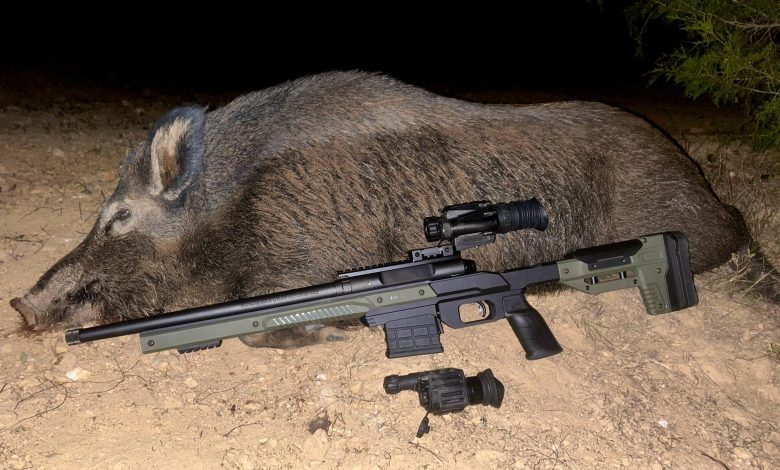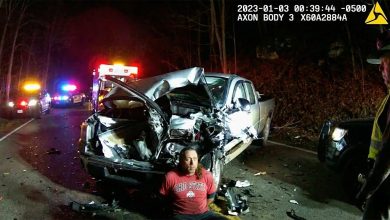Is Hunting With a Thermal Scope Legal in Your State?

Hunting laws can be tricky, and if you’re wondering whether you can legally hunt with a thermal scope, the answer depends on where and what you’re hunting.
In the United States, thermal optics are legal in many states for hunting predators like coyotes, feral hogs, and varmints but are often restricted for big game like deer, elk, and turkey, especially at night.
Each state has different laws, and in some cases, you may need a special permit to use thermal imaging for hunting.
Example:
- Texas: Fully legal for hogs, coyotes, and even deer.
- California: Completely banned for big game hunting.
- Florida: Allowed for hogs and coyotes but with light restrictions.
Bottom Line? Check your state’s hunting regulations before heading out with a thermal scope.
State-by-State Breakdown of Thermal Scope Hunting Laws
⚠ Disclaimer: This is not legal advice. Hunting laws change frequently, and you must check with your state’s wildlife agency to confirm the latest regulations before using a thermal scope for hunting.
States Where Thermal Scope Hunting Is Legal
- Alabama – Legal for hogs & coyotes (permit required)
- Arkansas – Legal for feral hogs & raccoons with dogs
- Connecticut – Legal for raccoons & possums (seasonal)
- Delaware – Legal if no infrared/light is emitted
- Florida – Legal for hogs & coyotes (some restrictions)
- Georgia – Fully legal, no restrictions
- Idaho – Legal but must not emit light
- Illinois – Legal for small game (coyotes, foxes, raccoons)
- Indiana – Legal with continuously burning visible light
- Iowa – Legal if no visible light is emitted
- Kansas – Legal with a night vision permit (seasonal coyote hunting)
- Kentucky – Legal for coyotes with shotguns (seasonal)
- Louisiana – Legal for hogs & coyotes
- Maine – Legal for raccoons & coyotes (seasonal, with dogs)
- Maryland – Legal but must not emit visible light
- Massachusetts – Legal with no visible light emissions
- Michigan – Legal for nighttime small game hunting
- Minnesota – Legal for foxes & coyotes (seasonal)
- Mississippi – Legal on private land for predators
- Missouri – Legal for coyotes (Feb 1 – March 31)
- Montana – Legal for coyotes & non-regulated species
- Nebraska – Legal for furbearers & coyotes
- New Hampshire – Fully legal, no restrictions
- New Jersey – Fully legal, no restrictions
- New York – Legal for certain small game at night
- North Carolina – Fully legal, no restrictions
- North Dakota – Legal for coyotes & foxes
- Ohio – Legal for coyotes, raccoons, skunks, etc.
- Oklahoma – Legal for hogs & coyotes
- Pennsylvania – Fully legal, no restrictions
- Rhode Island – Legal but only for raccoons at night
- South Carolina – Legal for hogs, coyotes, armadillos
- South Dakota – Legal but only on private property
- Tennessee – Legal but restricted from sunset to sunrise
- Texas – Fully legal, no restrictions
- Utah – Fully legal
- Vermont – Legal, does not emit IR light
- Virginia – Legal for certain small game at night
- Washington – Legal for coyotes outside deer/elk season
- West Virginia – Legal for coyote, fox, raccoon, skunk, opossum
- Wisconsin – Legal for small game (coyotes, raccoons)
- Wyoming – Legal for predators on public land (with permission)
States Where Thermal Scope Hunting Is Illegal
- Alaska – Illegal
- Arizona – Illegal
- California – Illegal
- Colorado – Illegal
- Hawaii – Illegal
- Nevada – Illegal
- New Mexico – Illegal
- Oregon – Illegal
Pro Tip: Always check with your state’s wildlife agency before heading out with a thermal scope.
Thermal Scopes vs. Night Vision
Both thermal and night vision help hunters operate in low-light conditions, but thermal imaging has some distinct advantages.
- Thermal Scopes: Work in total darkness, detect heat, and cut through fog, smoke, and brush.
- Night Vision: Requires ambient light and doesn’t detect heat.
Thermal scopes are the ultimate edge when hunting at night or in rugged terrain, making them perfect for coyote and hog hunters.
For a deep dive into how they differ and their advantages and disadvantages, stay tuned for an upcoming article!
Why Armasight Thermal Weapon Sights?
If you’re serious about hunting with thermal, you need a scope that delivers reliable performance in the field. That’s where Armasight’s Contractor and Collector series comes in.
Key Advantages of Armasight Thermal Scopes
- Superior Detection Range – Spot predators hundreds of yards away
- Rugged Durability – Built for harsh weather & challenging terrain
- User-Friendly Controls – Intuitive operation for quick adjustments
- Extended Battery Life – Stay in the hunt longer
Final Thoughts: Can You Hunt With a Thermal Scope?
Yes, but know your state’s laws.
Get ready to dominate the night and become the ultimate predator! Explore Armasight Thermal Weapon Sights to get the edge in your next hunt.
Read the full article here








